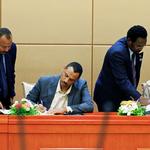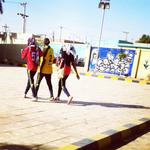Youth in the Sudanese Uprising: Resistance in context
Young people constituted the majority of the protesters in the uprising against the Islamist regime from December 2018. They became the backbone of the neighbourhood committees and the sit-in in front of the military headquarters, and were instrumental in documenting and posting the events in social media. This generation is raised under the NCP, and has not seen a Sudan without Omer al- Bashir in power. Their interaction with the state and attitudes towards government have therefore been highly influenced by the Islamist project.
Based on interviews with youth activists in Khartoum in the first half of 2020, this study explores how youth have interacted with the regime in the decade before the uprising. It looks at how lessons from previous resistance and repression became instrumental for the success of the uprising in 2019, where underground organisation and the use of social media were key. The study also analyses how certain narratives of the revolution have become contested. Competing narratives have developed around stories of sexual assault of women and girls in the sit-in and the military attacks on Columbia, an area of alcohol and drug vending. Do these stories represent the spirit of the revolution, or should they be framed as attempts of staining the noble cause of the protests, and should therefore be silenced? The opposing views on these events exhibit tension between conservative and radical understandings of resistance and change, and demonstrate how the young protesters, although united against Bashir, have very different visions of a Sudan after NCP.





